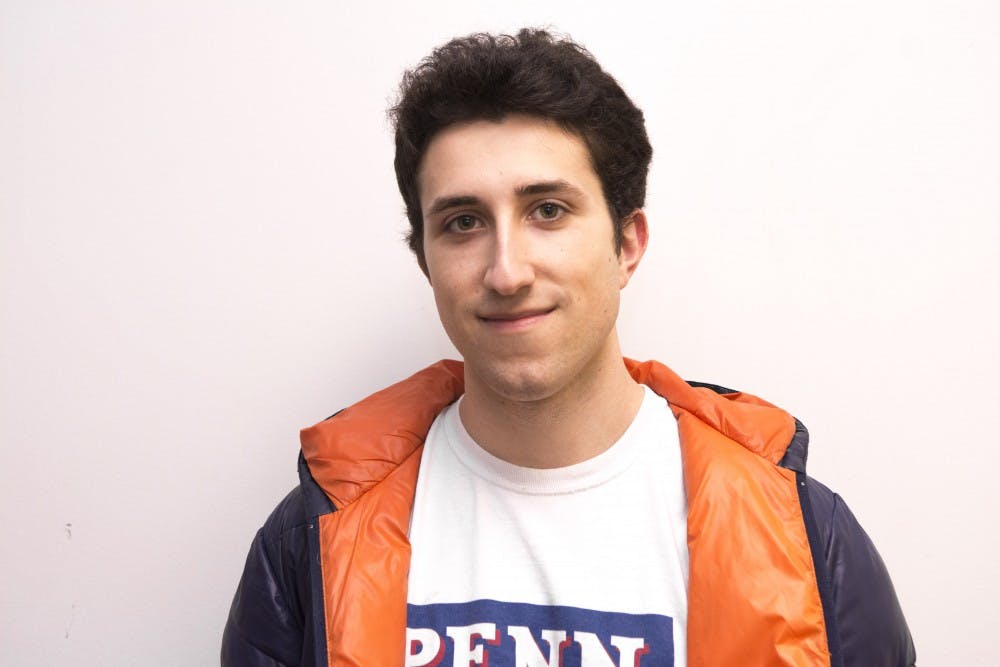In the words of Penn President Amy Gutmann and Provost Vincent Price, “ ... at Penn everyone belongs.” It’s a strong sentiment; an ideal we should strive to reach. But unfortunately, in the eyes of many students, including College sophomore Luke Tortora, that sense of belonging has yet to be realized for one group in particular: Republicans.
In his recent op-ed published in The Daily Pennsylvanian, Tortora described what he sees as, “a culture dedicated to shaming conservative thought,” at Penn.
Tortora isn’t alone in his opinion. According to a recent guide released by the Heterodox Academy, Penn and the majority of the other Ivies rank outside the top 25 universities, in “viewpoint diversity,” — a conclusion they determined by rating each of the top 150 universites’ free speech codes and relative acceptance of conservative/libertarian viewpoints. Penn scored highly for free speech but was only somewhat friendly to those on the right.
Groups like Heterodox Academy are generally concerned with the idea that the proliferation of liberal students and professors on college campuses is creating an “orthodoxy” of opinion wherein viewpoints like Tortora’s are no longer tolerated.
To what extent this orthodoxy exists and conservative viewpoints aren’t accepted, is itself a matter of opinion. But what’s undeniable is the fact that Tortora, and conservatives like him, feel this persecution to be real.
The idea that any student might feel unsafe to speak their mind is clearly a threat to our free and open discourse. However, given the implications of some conservative opinions, and the steady rise of the far right, the divisiveness of our political culture is likely to grow.
Given that the movement for greater viewpoint diversity is generally driven by a perceived lack of conservative voices, it’s important to first determine what we view as the state of political discourse on college campuses. While it’s true that since the early 90’s the proliferation of self-identified liberal professors has increased, some, like The New York Times opinion columnist, Paul Krugman, interpret the pattern differently.
In his view, it’s not so much that college professors have shifted to the left as it is that both political parties have drifted right. This increase in far right thinking means that what passes as conservative politics will likely become increasingly radical.
Therefore, given the rise of the alt-right, trying to maintain a balance of liberal and conservative viewpoints on campus has taken on a whole new meaning.
Imagine if prior to Donald Trump’s candidacy, The Daily Pennsylvanian’s editorial board had published an article saying we need to create an environment where students feel “empowered” to voice their support for a candidate who’s called for banning immigrants based on their religion.
Such a position might have seemed absurd given that it flies in the face of our supposed ideal of belonging. But in the era of Donald Trump this has become a legitimate political viewpoint and therefore the DP felt Trump’s followers should feel safe to speak their mind.
On the outset it’s easy to see why the silencing of Trump supporters would be a problem. At Penn, our commitment to diversity means we are accepting of all identities and positions.
But for Muslim students, Mexican students and any other group who feels personally threatened by Donald Trump, the very presence of his politics can be read as a threat to theirs.
This is what happens when the rise of identity politics meets a movement that’s intolerant of certain identities.
The clash of diametrically opposed viewpoints also puts University administrators in a very difficult position. How can Penn maintain a commitment to being accepting of two viewpoints which are increasingly incompatible?
In the abstract, ensuring viewpoint diversity on campus is undoubtedly an important issue. Having a limited range of acceptable opinions is detrimental to intellectual discourse and allows for commonly held beliefs to go unchallenged. But what happens when those challenges amount to questioning our fundamental belief in the value of acceptance?
Conservative politics, like all brands of politics, deserve their place on college campuses. But how can we balance our dedication to the free exchange of ideas while maintaining an accepting environment for minority students?
If Trump’s popularity is any indication of what’s to come, then the solution to this question will only become more difficult to determine.
CAMERON DICHTER is a College junior from Philadelphia, studying English. His email address is camd@ sas.upenn.edu. “Real Talk” usually appears every other Monday.
The Daily Pennsylvanian is an independent, student-run newspaper. Please consider making a donation to support the coverage that shapes the University. Your generosity ensures a future of strong journalism at Penn.
Donate




